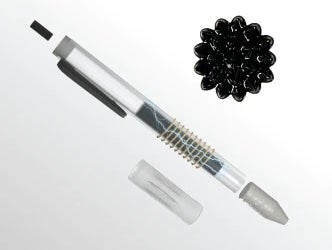Groundbreaking AI pen detects Parkinson’s by analysing handwriting
Handwriting is a complex process requiring brain-hand coordination and research shows it is substantially affected by Parkinson’s
Scientists have developed a special pen that analyses hand movements using artificial intelligence to detect early signs of Parkinson’s, an advance that could lead to low-cost diagnosis for the disease.
The device can identify differences in the writing styles of people with and without the neurological disease, which affects 10 million people worldwide. Symptoms include tremors and deteriorating limb and body movements.
It is the second most common neurodegenerative disease after Alzheimer’s, and the fastest growing of such conditions.
However, diagnoses typically done by observing patient motor skills remain underestimates in low- and middle-income countries due to a shortage of specialists.
Handwriting is a complex process requiring brain-hand coordination and previous research has shown it’s substantially affected by Parkinson’s.
The AI pen containing magnetic ink detects signs of Parkinson’s by analysing handwriting samples. “Here we developed a diagnostic pen, featuring a soft magnetoelastic tip and ferrofluid ink, capable of sensitively and quantitatively converting both on-surface and in-air writing motions into high-fidelity, analysable electrical signals for self-powered PD (Parkinson’s Disease) diagnostics,” researchers, including from the University of California Los Angeles, said.

The researchers demonstrated that, with the assistance of an AI system, the pen could successfully distinguish handwriting samples of three patients with Parkinson’s from those of 13 healthy participants.
They found the device could identify Parkinson’s disease in patients with more than 95 per cent accuracy in the small set of 16 individuals.
The researchers said they hoped the pen could be developed into a low-cost, accurate, and widely distributable technology to improve Parkinson’s diagnostics across large populations and in resource-limited areas.
“Our development of the diagnostic pen represents a low-cost, widely disseminable and reliable technology with the potential to improve PD diagnostics across large populations and resource-limited areas,” the researchers said. “It is particularly beneficial for untreated individuals who may not yet recognise themselves as potential patients with PD.”
Join our commenting forum
Join thought-provoking conversations, follow other Independent readers and see their replies
Comments